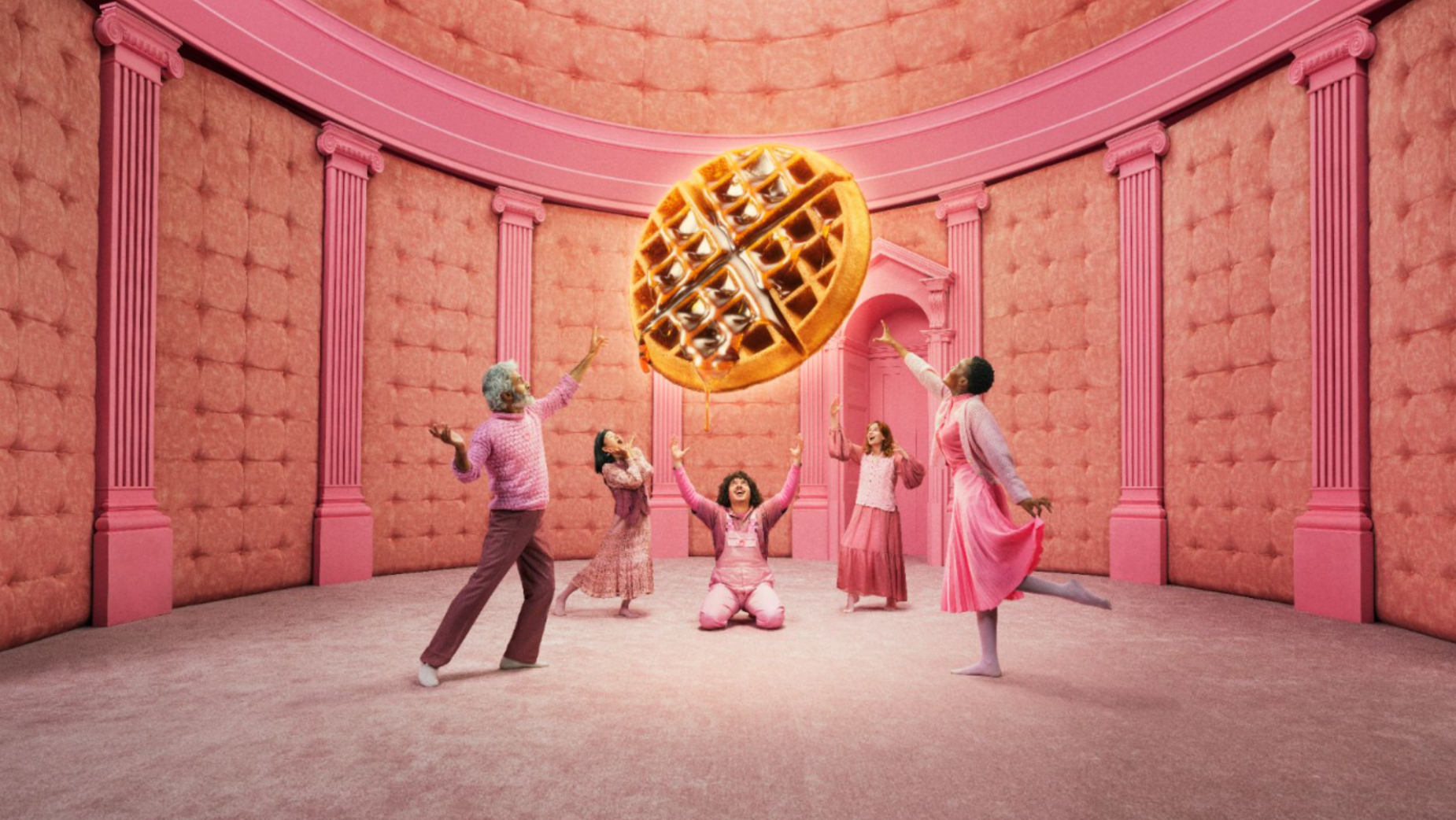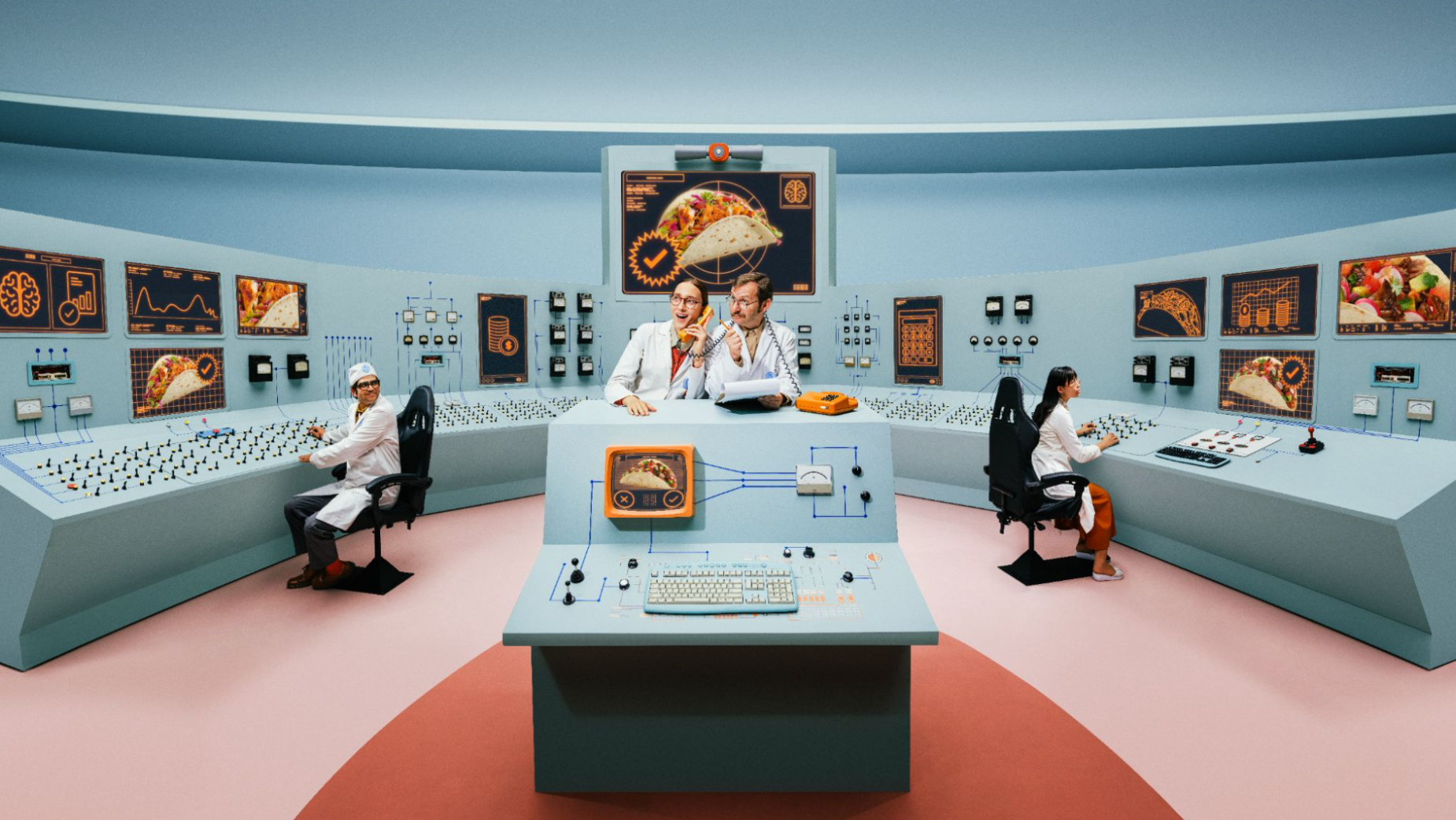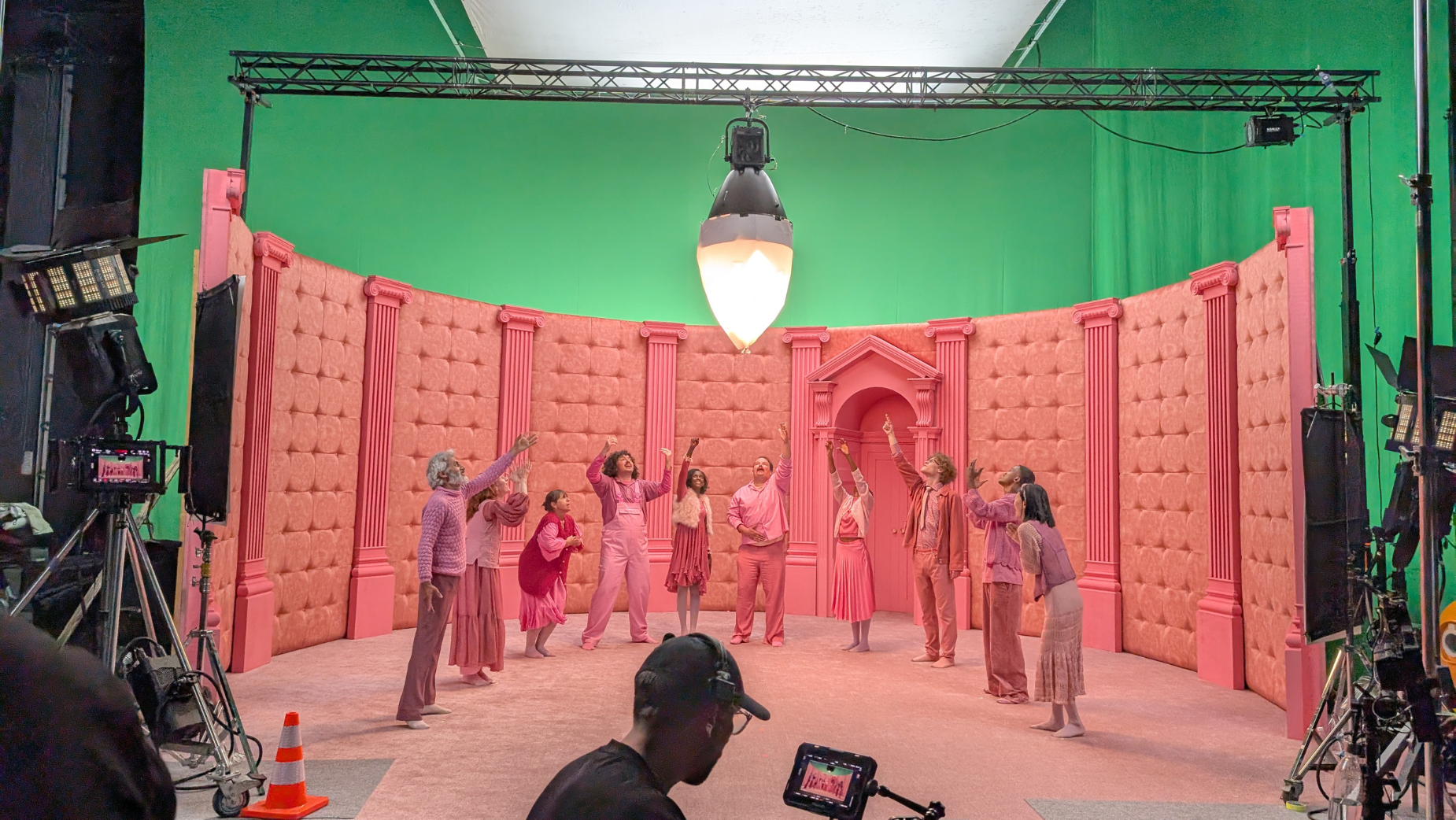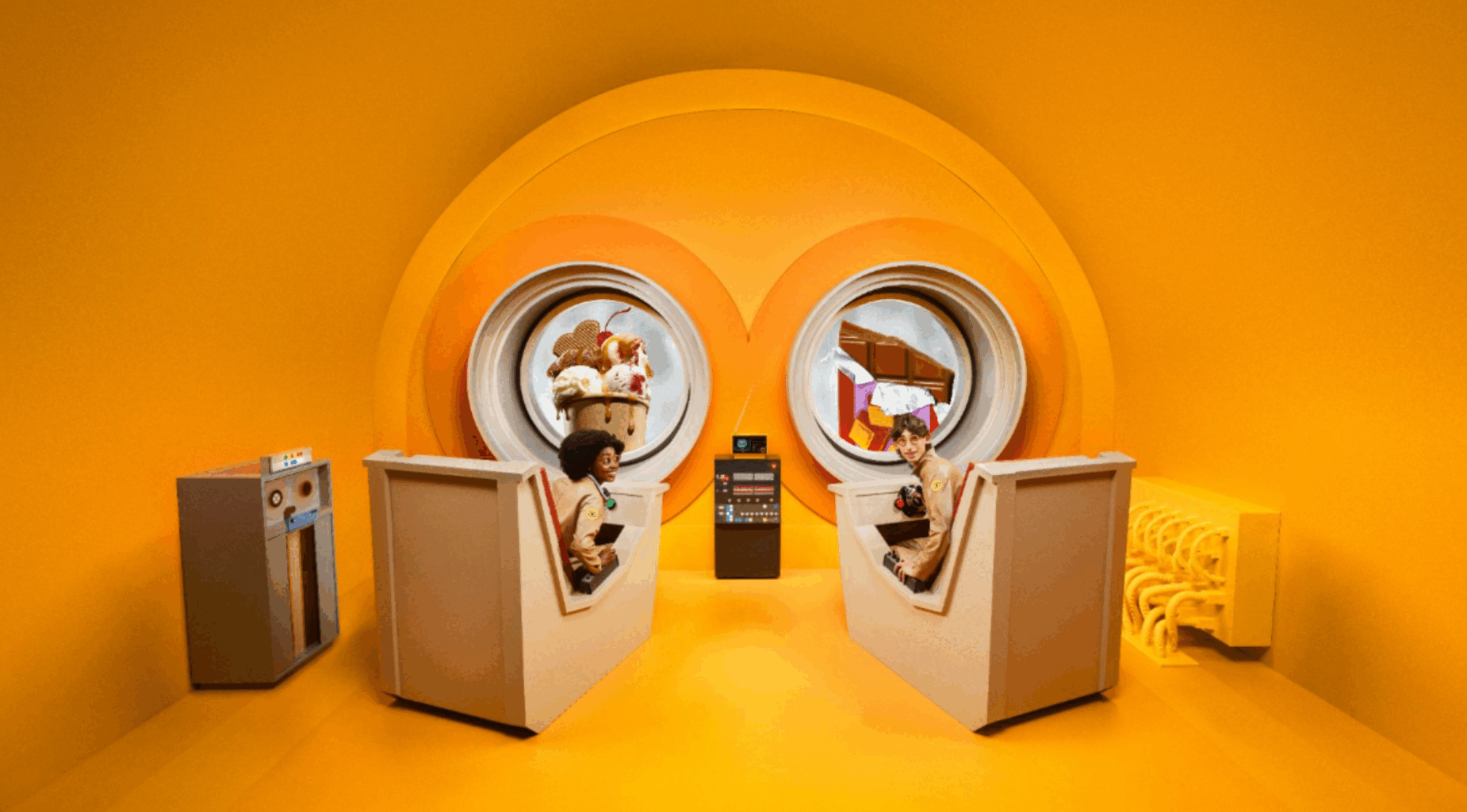Just Eat Takeaway engaged Australian independent agency ABEL— which scaled up for the global campaign — to create its latest, ‘Inside Out’-inspired brand platform, ‘This Body Says’.
The work diverges from the established music-video world of Just Eat brands, like Menulog, with a series of “non-literal” films focused on the internal conflict posed by the “moment of ordering”.
ABEL joined the brand’s agency village — which still features McCann London — to create the campaign, which looks inside the human body and brings body parts to life, considering the roles they play in deciding what to order.
“The weird and wonderful world of internal monologues felt really rich and really fresh as a place to play … the hardest part is figuring out what you’re going to order and overcoming that decision-making dilemma,” ABEL’s head of strategy, Rachael Fraser, told LBB.
ABEL co-founder Nicole Jauncey agreed the insight felt universal.
“That debate and that dilemma you have when you order … it isn’t true to one specific market more than the other. [It’s] something we all understand.”
The platform will eventually launch in 10 markets, including Netherlands, Poland, Italy, Spain, Belgium, Switzerland, and Austria, with 50 unique pieces of creative and over 3,000 total assets.
‘This Body Says’ won’t replace the brand’s ongoing music-video direction, which will continue globally, or disrupt Just Eat’s agency roster. In Australia, Menulog (Just Eat’s Aussie equivalent) is handled by fellow indie Thinkerbell.
Rachael added the key consideration was to make distinctive work, which can remain distinctive across diverse markets.
“The rest of the category exists in such a literal space,” Rachael explained.
“Everyone’s on the couch — that’s the whole world of delivery. We really wanted to make sure JET [Just Eat Takeaway] continued to shake off all the traditional takeaway tropes and create something that felt ownable and distinctive.
“Because the music video world was so distinctive and infamous, the follow-up needed to be equally distinctive and different from the rest of the category that exists … we needed to create another visual world that felt ownable.”

Unlocking the best approach for each market was, Rachael admitted, “a process”, but the constraints ultimately assisted the creative.
“It kept stripping us back to what is the heart of the idea — what’s the simplest, straightest, but obviously still interesting way we can say this. It was a really good exercise.
“All those research hours we sat in groups from all the different markets were really helpful [in understanding]… the role delivery plays in your life in quite different cultural scenarios.
“Making sure, ‘Did Somebody Say’ still made sense was really key. It’s a powerful, distinctive asset … to be able to make that still meaningful was key.”
Setting “simple foundations”, Nicole added, could unlock something relevant across many different cultures and languages.
“[We set] the foundations to be as simple as: funny, but in a pared-back way … so it didn’t lose any richness.”
She added the use of voice-over was another ‘simple foundations’ decision, which meant the work didn’t rely on dialogue.
“That creates a lot of challenges when it comes to translating work,” Nicole said.

Working with global marketing network Tower 28, the agency ensured humour wouldn’t be lost from market to market.
“They did a lot of work changing the script to be culturally relevant for [each] market. We ensured the English version was simple, pared back, and allowed the visuals to do the hard work.
“There was room … to ensure it landed in each market really well.”
Simon Fowler, co-founder and creative at ABEL, said the ability for the independent agency to roll out international work for a major brand is a testament to its model.
“It really puts to the test that promise we have, [to deliver] big agency experiences at a scalable level,” Simon explained.
“It’s been a really good test of our model, and I think the work proves that the model works.
“When you see the amount of work going out across digital, out of home, social, and radio, and then all the films we’ve created … we scaled up to do that, from our core team.
“This is just one case of how we can do [that], and we want to do it more — working wider and farther.”
He also praised production partners FINCH and director Sam Hibbard, who worked alongside ABEL’s AI tools.
“Because we wanted most of the social to have direct speech to camera, we were able to lift those and change things out to be different languages for different spots.”

Behind the scenes on the set of ‘This Body Says’ for Just Eat.
Nicole added Sam’s work across Europe was ideal for making the campaign work across markets.
“As we developed the scripts further, he was integral,” she said.
“Casting was [important] too, because we needed to ensure we were visually representing all different markets, and that they could see themselves.
“Not only from the main character ordering at the beginning, but the different characters inside.”
ABEL managed to keep the process “nimble”, Rachael said, because of the agency’s “senior team” and robust model.
“Where most big agencies, and a lot of their previous partners, are real big beasts with lots of layers and lots of stakeholders, I think because we’re little and … [clients] can pick up the phone, and talk to [ABEL’s] founders, who are the people on the tools,” she said.
“[JET could] actually just talk to senior people, which meant we could move nimbly. I think if we were a big juggernaut like all others, with all those layers, we wouldn’t have been able to be.”
Collaboration with client, production, and agency village partners, Nicole added, is the strength of ABEL’s model.
“This project is a true display of working collaboratively across different time-zones with many different partners, from production, to transcreation, to the client,” Nicole said.
“Everyone’s voice was heard, and there was never a dumb idea. That’s the way we really like to work.
“There is no barrier for us when it comes to where you’re located in the world — there were definitely a lot of late nights… But ensuring we had a global perspective on all of the work was always front of mind.
“[Creating] something going out all across Europe is a great testament to the thinking in Australia, and the way we can work.”

